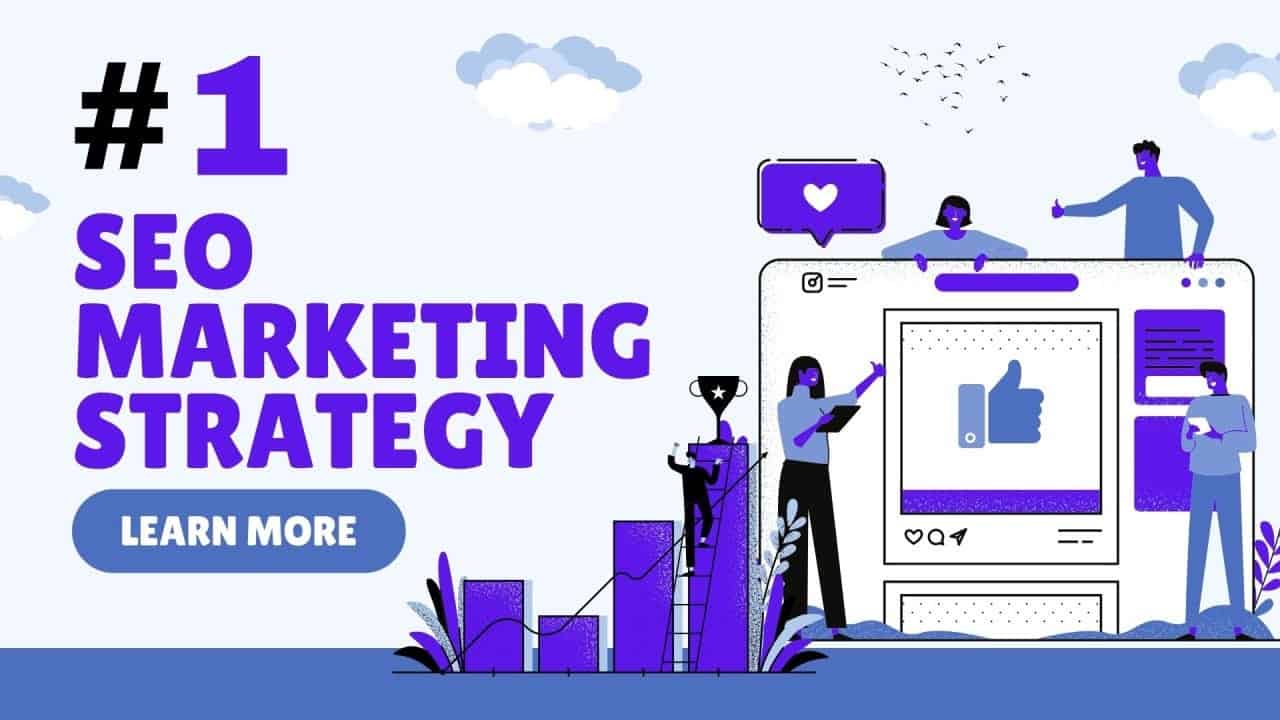Mastering SEO Strategies for Long-Term Marketing Success
In today’s competitive digital landscape, Search Engine Optimization (SEO) plays a pivotal role in driving organic traffic and ensuring online visibility. Implementing effective SEO strategies can elevate your website’s ranking, attract more visitors, and convert them into customers. In this guide, we’ll explore the fundamental SEO strategies you need to know, from keyword research to on-page and off-page optimization techniques that can keep your marketing efforts ahead of the curve.
Why SEO Strategies Matter
SEO strategies matter because they help search engines like Google understand your website’s content and rank it appropriately. The higher your site ranks on search engines, the more likely you are to attract clicks, visits, and potential conversions. However, SEO is not just about visibility; it’s about building credibility and creating a seamless user experience.
Without a clear SEO strategy, you risk being overshadowed by competitors, missing out on valuable traffic, and losing opportunities to grow your business.
Types of SEO Strategies
Effective SEO strategies encompass both on-page and off-page techniques. Let’s break down the core components of each to help you optimize your marketing approach:
1. Keyword Research
Keyword research is the foundation of any SEO strategy. By understanding the search terms your target audience is using, you can tailor your content to meet their needs. There are two types of keywords you should focus on:
- Short-Tail Keywords: General terms like “SEO strategies” or “digital marketing” that have high search volume but are highly competitive.
- Long-Tail Keywords: More specific phrases like “best SEO strategies for small businesses” that have lower search volume but tend to attract more qualified traffic.
Pro Tip: Use keyword research tools like SEMrush or Google Keyword Planner to identify high-value keywords related to your business and ensure they are naturally integrated into your content.
2. On-Page Optimization
On-page optimization focuses on the content and HTML source code of a page. By improving your on-page SEO, you make it easier for search engines to understand your website and rank it accordingly. Here are some key on-page SEO strategies:
- Meta Titles & Descriptions: Ensure every page has a unique, keyword-rich meta title and description. This provides search engines and users with a quick summary of your content.
- Header Tags (H1-H6): Structure your content using header tags to improve readability. H1 tags should be reserved for the main title, while H2-H6 tags are used for subheadings.
- Alt Text for Images: Add alt text to all images on your website. Not only does this help with accessibility, but it also gives search engines more context about the image.
- Internal Linking: Build internal links to related content on your website. This helps distribute link equity and makes it easier for users and search engines to navigate your site.
3. Technical SEO
Technical SEO ensures that your website is optimized for search engines from a technical standpoint. This involves making your website easy to crawl, fast, and secure.
- Website Speed: Page load times are critical. Use tools like Google PageSpeed Insights to ensure your website loads quickly, particularly on mobile devices.
- Mobile Responsiveness: Ensure your website is fully optimized for mobile users. More than half of all internet traffic now comes from mobile devices, and Google favors mobile-friendly websites in its rankings.
- Sitemaps & Crawlability: Create an XML sitemap and submit it to search engines to make it easier for them to crawl and index your site.
- SSL Certificate: A secure website (HTTPS) is a ranking factor for Google, so make sure your website has an SSL certificate installed.
4. Off-Page Optimization
Off-page SEO focuses on activities you can perform outside your website to improve its search engine ranking. This primarily involves building backlinks and enhancing your online reputation.
- Backlink Building: The number and quality of backlinks pointing to your site are key factors in SEO. Try to earn links from reputable websites through guest blogging, partnerships, and creating shareable content.
- Social Media Presence: While social media shares aren’t direct ranking factors, a strong presence on platforms like LinkedIn, Twitter, and Facebook can drive traffic and signal to search engines that your content is valuable.
5. Local SEO
For businesses targeting specific geographic areas, local SEO is essential. Ensure your business is listed on Google My Business and that your contact details are consistent across the web. Encourage customers to leave positive reviews on your Google listing and other review platforms.
SEO Best Practices to Follow
To stay ahead of the competition, keep these SEO best practices in mind:
a. Focus on High-Quality Content
Content remains the king of SEO. Create valuable, informative, and engaging content that answers your audience’s questions. Blog posts, how-to guides, case studies, and infographics are great ways to keep users on your site longer, which improves your rankings.
b. Stay Updated with Algorithm Changes
Google’s algorithms are constantly evolving. Stay informed about major updates like Google’s Core Web Vitals and how they might affect your site. Tools like Moz and Search Engine Journal can keep you up-to-date.
c. Monitor and Adjust Your Strategy
SEO isn’t a one-time fix. Regularly monitor your website’s performance using Google Analytics or SEMrush. Track your ranking progress and be ready to tweak your strategy based on what’s working and what isn’t.
d. Optimize for Voice Search
With the rise of voice search, optimizing your content for voice-activated devices is becoming increasingly important. Focus on natural language and question-based queries to capture this growing audience.
Common SEO Mistakes to Avoid
While following SEO strategies can help, there are several common mistakes that could derail your efforts:
- Keyword Stuffing: Overloading your content with keywords can harm your rankings. Focus on using keywords naturally and ensuring the content reads well for users.
- Neglecting Mobile Users: Failing to optimize for mobile devices can seriously affect your rankings. Make sure your website looks and performs well on all devices.
- Ignoring Analytics: Not tracking your SEO performance means missing opportunities to improve. Regularly review your analytics to ensure your strategy is on track.
Conclusion
SEO strategies are essential for any business aiming to thrive in the digital world. From on-page optimization to off-page efforts like link building, mastering these tactics will ensure that your website ranks higher, attracts the right audience, and converts visitors into loyal customers.
FAQs
What is an SEO strategy?
An SEO strategy is a comprehensive plan to improve your website’s ranking in search engines by using various optimization techniques, including keyword research, on-page optimization, and backlink building.
How long does it take for SEO strategies to work?
SEO is a long-term effort. It can take several months to see significant improvements, depending on your industry, competition, and the quality of your optimization.
What is the difference between on-page and off-page SEO?
On-page SEO refers to optimizing elements within your website, such as content and HTML structure. Off-page SEO involves actions taken outside your website, like backlink building and social media promotion.
How do I perform keyword research?
Keyword research involves using tools like Google Keyword Planner or SEMrush to identify relevant search terms that your target audience is using. Focus on a mix of short-tail and long-tail keywords.
Why is mobile optimization important for SEO?
Mobile optimization is crucial because a large percentage of internet traffic comes from mobile devices. Google also uses mobile-first indexing, meaning it prioritizes mobile-friendly websites in its search results.
Top Tools to Simplify and Scale Your SEO Strategy
- SEMrush – A comprehensive SEO tool that offers keyword research, competitor analysis, and site audit features to boost your SEO performance.
- Ahrefs – A powerful tool for backlink analysis, keyword research, and competitor tracking, ideal for off-page optimization.
- Moz – This tool provides useful SEO insights, including link building, on-page optimization tips, and SERP tracking.
- Yoast SEO – A popular WordPress plugin that helps optimize on-page SEO elements like meta descriptions, titles, and keyword usage.
- Google Search Console – A free tool from Google to track your website’s performance in search results and identify areas for improvement.
- Screaming Frog – An SEO crawler that helps you analyze your website’s technical SEO, identify broken links, and improve internal linking.
- Ubersuggest – An easy-to-use tool for keyword research and content ideas, making it a great option for beginners.
Keywords: SEO strategies, on-page SEO, off-page SEO, keyword research, technical SEO, backlink building, mobile optimization







